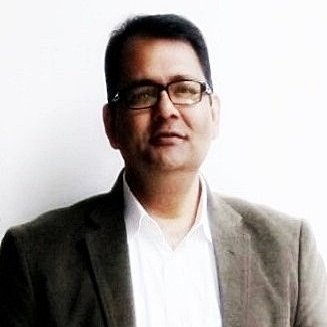Targeting the Hard-core Poor (THP) Programme is a rigorously evaluated and proven model that brings sustainable and transformative change in the lives of the extremely poor
Bandhan-Konnagar (BK) was registered as Society in 2001 under the West Bengal Societies Registration Act, 1961. Since 2006, BK has addressed extreme poverty through a unique model of graduating women leading ultra-poor households to emerge as successful entrepreneurs through Targeting the Hardcore Poor Programme (THP).
At present, THP covers 5494 Gram Panchayats in 72 districts across 13 states that include Assam, Bihar, Chhattisgarh, Jharkhand, Madhya Pradesh, Maharashtra, Odisha, Rajasthan, Uttar Pradesh, Uttarakhand, Telangana, Tripura and West Bengal
Women leading ‘ultra-poor’ households in the age group of 18 to 59 years and living in extreme poverty are the prime beneficiaries of THP. Keeping to “deprivation criteria” under Socio-Economic Caste Census 2011, the households selected for THP have no male earning member between ages 16 to 59 years. The THP beneficiaries are the sole bread winners for their family. They lack confidence, skills, financial support, savings and credible productive assets for sustainable livelihood and need economic security required to lead a life of dignity.
THP Objectives
- Ensure economic, social and inspirational changes in the lives of the ‘ultra-poor’ households
- Ensure holistic assistance to capacitate the hard-core or ‘ultra-poor’ in building self-reliance and sustainable livelihoods with improvement in overall quality of life
- Ensure convergence with Government schemes & entitlements
- Ensure graduation of the hard-core poor into socio-economic mainstream within 24 months

India’s phenomenal economic growth story in the last 3 decades has an underlying chapter on extreme poverty. The SECC 2011 with deprivation criteria set, estimates a significant number of households that are identified as ‘ultra-poor’ households since they fail to meet basic consumption needs and remain trapped in poverty. THP is a unique model designed by Bandhan-Konnagar in 2006. It has been evolving since then, keeping to dynamics of social & economic challenges continuing and emerging across the country that endanger and push households within vicious circle of poverty. Believing in engendered approach to support women-led households being pushed down to deplorable assetless conditions, THP programme identifies the beneficiaries through a PRA process, household surveys and local stakeholder’s involvement. Each beneficiary is taken through a 18 to 24 months of rigorous process that involves continuous motivational and capacity enhancement support, mentoring, motivation and coaching in micro-enterprise development and management of farm & non-farm segments as per beneficiary choice and local market factors.
The unique feature of Bandhan-Konnagar model compared to other such ‘graduation model’ approaches adopted by diverse agencies in India and other countries is that assets are transferred in kind only; consumption stipends provided for motivation and sustenance during the preparatory phase; handholding in business management for 6-8 months with encouragement to diversify assets and enterprises; and finally convergence with linkage for beneficiaries through all eligible social security schemes and banking and micro-credit facilities. The intensive programme support ensures that after 24 months beneficiaries confidently assume enterprise success in diverse trades and mix of enterprises in farm and non-farm with confirmed asset multiplication and economic security at household level. Eventually the households showcase access to education, better health and nutrition outcomes with coverage under diverse social security schemes, insurance coverage, credit access and banking services. Each household emerges out of poverty with HH income multiplied by at least 5 times for over 90 percent of beneficiaries. THP success has supported Bihar Rural Livelihoods Promotion Society or JEEViKA design and implement the Satat Jeevikoparjan Yojana (SJY) programme targeting 2 lakh households in the state of Bihar wherein Bandhan-Konnagar provides the Technical Assistance support to SJY. THP goal is to bring economic, social and inspirational changes in the lives of the poorest and marginalized women and support circular economy in remote and rural India.

Justification
Around 69.43 lakh women headed households in India fall under three or more deprivation indicators as per SECC 2011 and many communities have historically remained at the bottom of the development pyramid since they are far from access to social and economic resources or opportunities. Poverty induces zero or low literacy, little or no capital, minimal skills and as a result the ‘ultra-poor’ remain tied to low wage, insecure or infrequent occupations. Without productive assets or sustainable sources of income, ‘ultra-poor’ cannot meet basic consumption needs. THP Programme as studied by world’s renowned economists, remains a rigorously evaluated and proven model that brings sustainable and transformative change in the lives of the extremely poor. THP empowers ‘ultra-poor’ households to find solutions that cater to household needs, fits to local market needs and sets to social and economic dimensions in the community. The impact studies indicate that asset growth and capital build up for majority of beneficiaries continue even 10 years post intervention.
THP: Major Activities
- Identification of the beneficiaries through a participatory process to ensure unbiased selection.
- Capacity building of selected beneficiaries on Enterprise Development & Management.
- Formation of Village Committee-Ati Daridra Sahayak Committee (ADSC) for support.
- Productive asset transfer for initiating farm-non-farm combination of enterprises.
- Consumption stipend during capacity building and enterprise set-up for motivation.
- Hand holding and mentoring through weekly group meeting with home/ enterprise visits.
- Ensure access and linkages to different social security schemes and financial services.
- Financial literacy and development of saving habit with asset investment.
- Main streaming of beneficiaries with social consciousness.
Impact: As evidence depicts
Bandhan-Konnagar has implemented the THP model since 2006 with so far 1.72 lakh ultra–poor households, moving them successfully out of poverty across 13 states in India and another cohort of 1.46 lakh through Technical support extended to JEEViKA in Bihar since 2019.
In 2006, Abdul Latif Jameel Poverty Action Lab (J-PAL) South Asia based at the Institute for Financial Management and Research and established at the Department of Economics at the Massachusetts Institute of Technology (MIT), USA in 2003, began a randomized evaluation of the THP programme in Murshidabad district of West Bengal. The study revealed that THP caused broad and lasting economic impacts including increased consumption, growth in assets and increased savings of households. Long-term studies by researchers suggest that the impact has been even bigger ten years after intervention completion.
In 2016, Deloitte assessed the programme impact in the districts of South 24 Parganas and Murshidabad of West Bengal. The assessment found average annual income of beneficiary households to have increased by 778%.
In 2018, J-PAL assessed THP programme impact in Jhalawar- Rajasthan, where it revealed that average monthly income of beneficiaries tripled with average monthly household-income also recorded to be more than double and overall, the average value of assets held by the beneficiaries nearly doubled, from Rs. 12,085 to Rs. 21,017.
Ref: https://economics.mit.edu/files/12015
https://www.povertyactionlab.org/sites/default/files/publications/building-stable-livelihoods.pdf

Impact: At a Glace
- The program has reached 1.72 lakh ultra-poor households and helped them to graduate out of extreme poverty with high aspirations.
- Over 1.30 lakh graduated ultra-poor households have been mainstreamed and became economically self-reliant and socially included.
- Over 1.66 lakh households have been involved in the larger financial and social eco-system with convergence support from government schemes and entitlements.
Challenges
- Unbiased beneficiary selection—free from any local pressure with community acceptance and proper functioning of village committees like Ati Daridra Sahayak Committee.
- Any unforeseen shocks- natural calamities, diseases-deaths that affects regular beneficiary enterprise operations.

“Poverty is a social and economic phenomenon historically influenced by social systems in India. At Bandhan-Konnagar, we believe in igniting potential and hence every ultra-poor household when guided, motivated and coached, successfully establishes enterprises that help to sustain livelihood and create assets to take a quantum leap out of poverty. The THP story is known across the world. Bandhan-Konnagar has developed the model that has put in IT enabled MIS and outcome tracking in 13 states. We are now technical leaders in the country on one of ‘ultra-poor’ poverty alleviation model through enterprise approach and aspire to support State Rural Development Missions for at scale solution,” shares Shantamay Chatterjee, Vice President, Bandhan-Konnagar.
“We are indebted to our donors Bandhan Bank Limited, Bajaj Finserve, Bandhan Financial Services Limited, ITC, Founders Pledge and many others in the present and the past and seek support of investors and donors to reach out to the farthest corners of the country and every year resolve extreme poverty affecting at least 200,000 households. Our dream is to create significant impacts as THP is a very cost-effective model whereby through a onetime investment we permanently reduce financial burden of subsidies, cash support and other grants that go to support the extreme poor survive. The ultimate goal for us at Bandhan-Konnagar is to support the Government reach SDG 1 and Zero Extreme Poverty in India, adds Chatterjee.



